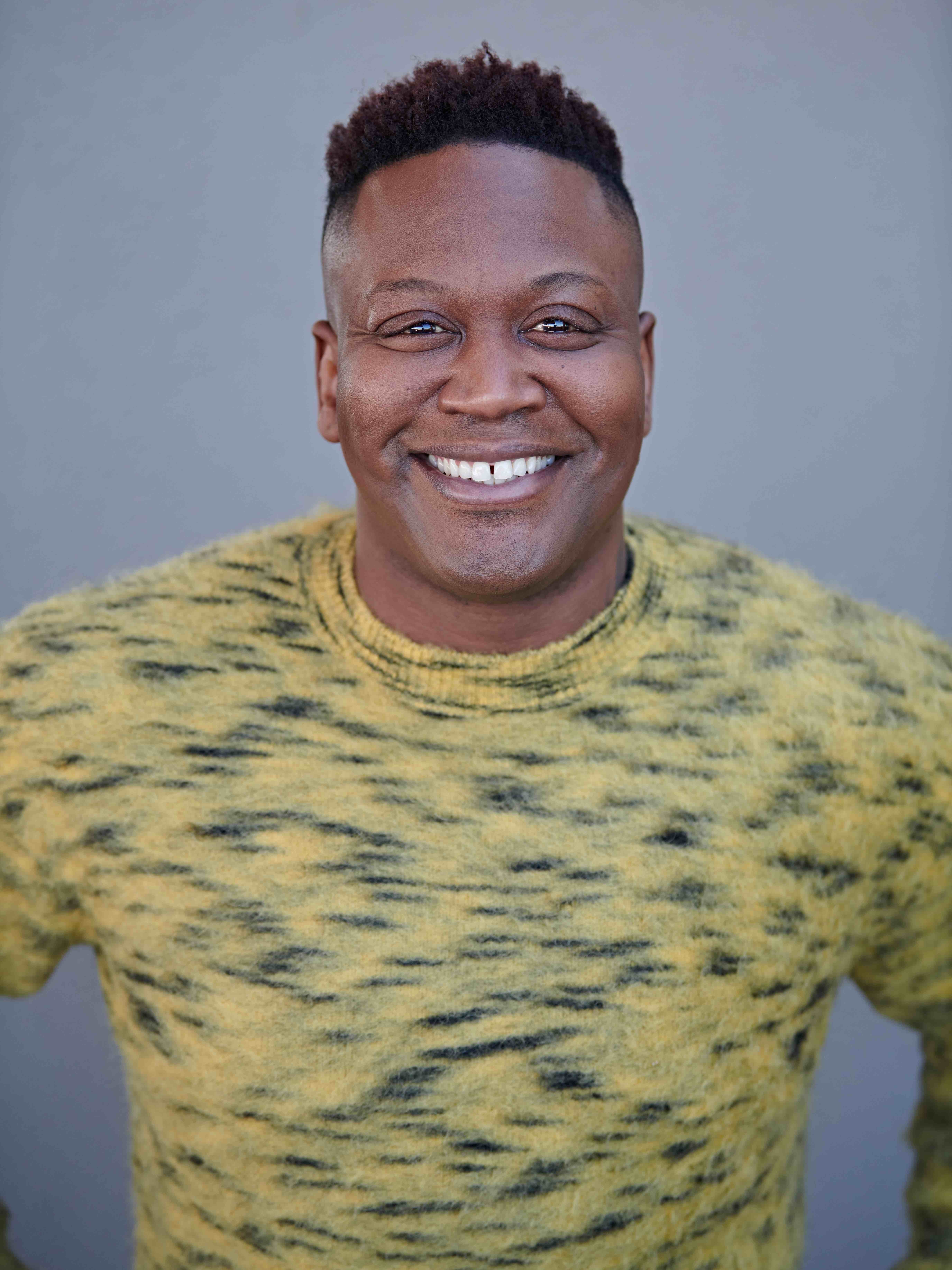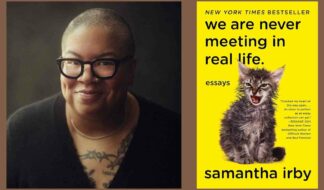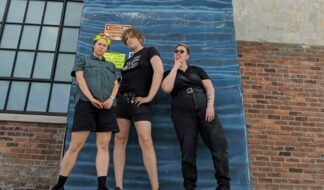‘I Am Pride’: Tituss Burgess on Performing with the Detroit Symphony Orchestra for Its Inaugural Pride Concert
The performer says you might even get a 'little taste' of Ursula

When actor and singer Tituss Burgess takes the stage with the Detroit Symphony Orchestra, it won’t just be the DSO’s first official Pride concert — it will also be the high tenor’s first-ever time in Detroit. Even Burgess, an Athens, Georgia native, is surprised he’s never been to the Motor City. “Parts of my cultural card should be retracted, that’s for sure,” he joked with Pride Source recently.
In many ways, he’s been everywhere, though. Burgess could be seen right in your home while portraying Titus Andromedon on the Netflix series "Unbreakable Kimmy Schmidt.” Live performance, though, has long been the foundation of his career. Burgess gained recognition for his work on Broadway, appearing in notable productions such as his debut in “Good Vibrations,” “Jersey Boys” and “The Little Mermaid,” as Sebastian the Crab, a role he originated.
For his Pride show at 8 p.m. on June 29 with the DSO, which will feature Principal Pops Conductor Designate Enrico Lopez-Yañez, Burgess will celebrate icons from film and Broadway and perform songs from “Porgy and Bess,” “Jekyll & Hyde,” “Beauty and the Beast” and more.
Burgess recently spoke about how a racist experience at his first Pride reshaped how he thinks about the month-long celebration, what was particularly special to him about his role on “Kimmy Schmidt” and which famous Disney villain he may slip into during his Detroit performance.
How are you feeling about your upcoming performance with the DSO?
I'm so excited. It's such an esteemed orchestra, and of course, Enrico Lopez-Yañez is taking over all the Pops across America, so getting on his roster was exciting. We worked together about two years ago and just hit it off.
And he speaks very highly of the Detroit Symphony, so I'm eager to hear what their nuances will be on some of these sharks. I'll be offering some Shirley Bassey, Bette Midler and Lena Horne, a few other crooners in there that I dusted off and some songs that people don't visit very often anymore.
How did the interaction two years ago lead to this DSO performance? Was that instrumental in getting you here?
That's not quite how that works, but sort of. It was instrumental in me wanting to work with him again, that's for sure. Enrico is such a wonderful musician and conductor. It's all about the music and that, for me, sealed the deal, and so I'm eager to be under his baton again.
How do you decide on the repertoire?
I know I'm being asked to come offer a concert. Obviously, there's the occasion and what would be right thematically, but I pulled from what I'm experiencing at the moment in my life so that I don't get up on stage and lie. And I start there and try and weave in what I feel audiences obviously will want to hear, but offer up things that they wouldn't think to expect at a Pops concert, and it sort of goes from there. And I swap things in and out as we get closer to the show, but it's really sort of me intuiting my way through it.
In what other ways will this performance showcase Pride and what it means to you?
Well, I am the intersection of many things. I'm Black, I'm gay, I'm culturally Christian, I'm underrepresented. There's not a lot of representation out there for queer men of color. And so my very presence on stage is walking activism. I know people will come because they want to see Titus Andromedon or any of the other characters that I've played. But where I hover and where my musicianship starts is at the truth and at the truth of what’s going on in America, what's going on in my life and what's going on in my community, and that is the energy I bring with me on stage. So audiences will get what they want, but they'll also get a glimpse into how to think outside themselves.
Given the climate for LGBTQ+ people in the country right now, how do you feel about being an out gay Black man in 2024?
I notice a greater deficit in my community as far as representation is concerned, as far as mental health access is concerned. Because of the lack of it in our communities, it has affected the way my community responds to one another and the way we dream.
I feel like now more than ever, knowing what I know in my mid-40s, there's certain role models and certain imaging that I wish I had access to so that I knew what was possible for me as a gay Black man. And it is hard to dream of something with no past points of reference. How do you even put those puzzle pieces together? And while I want to be no one's role model, what I will do is put myself on full display — the good, the bad and the ugly — to at least give someone a template.
What does it feel like to know that fans do see you as a role model?
It's overwhelming. I'm certainly still figuring myself out and working through my stuff as a man of color. But what I acknowledge is that if they were not coming up to me saying something, then I don't think I would be doing it right.
So when someone feels compelled to acknowledge my modest contribution in that way, I just stand there and listen. People teach you how to treat them, and they clue you in on what is working if you just shut up and listen. And I just take notes, and these are the spaces where it seems I'm being most effective. Not to over-legitimize my presence in the world, but I do take what I do seriously in terms of art, and I'm cognizant of how it's consumed and how it is viewed and what I may or may not represent for the culture.

This is the first official Pride concert by the DSO. I’m wondering what your very first Pride experience was.
Oh, it was awful. The soundbite you'll get from this is not fun. I'll see if I can spin it for you.
Feel free to be honest.
Well, it was New York Pride and it was 20-some-odd years ago, and it was full of white people, and particularly white gay men who did not see me, who continued to not be able to see me. And while I don't need the gaze of another culture to legitimize me, I'm gobsmacked at how our community can be separated — segregated, even. How our lived-in experiences, while so varied, should make us race to the other to soften the blow. So ever since then, once I went in pursuit of my own cultural Pride experience thereafter, I paid more attention to my chosen family, tried to build community through my art and bring Pride to Pride as opposed to waiting for Pride to happen to me.
I'm sorry that you had that experience. Have you had better experiences at Pride recently?
Sure. I am Pride. I no longer need what I thought I needed. In fact, they need me and they need this type of candor and brutal honesty and all the parts of me: the broken spaces, the broken places, the whole places.
Regarding your role in “Kimmy Schmidt,” there was something so special about Titus’ relationship with Mikey. Looking back, how did it feel to be part of depicting that relationship?
While it was exaggerated and often over the top, what was honest about it was how imperfect it was. If you really look at it, [it’s] how unchecked trauma governs your later years. Titus Andromedon was closeted well into his 30s, I believe, before he moved from Mississippi, which I think gave way to the Titus Andromedon that we saw on TV. And it also created a culture of “me, I'm first”; that character became a bit of a hoarder, if you will, of moments. And I think that inevitably contributed to his inability to connect to Mikey the way that Mikey, I believe, was ready to connect with Titus Andromedon. And so it presented a very wobbly dating life. I'm just out of a 10-year relationship, but I have no idea what dating looks like or how to do it. It's very uncomfortable. Even when it goes great, it is still a very wobbly thing. You're in a very vulnerable state. And I think it just allowed these two men on that show to present the “I don't know how to do this” of it all. And that's what won me.
Would you be interested in returning to the character for a “Kimmy Schmidt” reboot?
Trust me, you want more from me than you think I have to offer.
What do you mean by that?
It means you want me to do other things. That's my answer.
What is it about “The Preacher's Wife” that's been so worth spending the last 15 years getting it from screen to stage?
I wish I could tell you. Sometimes your art arrests you, and then sometimes you choose to be obsessed with a thing. And this thing chose me. I knew that it would be an opportunity to put faith on stage in a way that is outside of religion. And to me, that is so important. I experience God. I have a great spiritual relationship with source and energy. And there's not just one way to know a power that is both outside of you and inside of you. And I think a lot of us are walking around feeling powerless because we are not connected to, what's the word? Our deities. And anytime I can lure the world back to the truth of who I think we are and how great we can be, and to create space for another energy to take over and be present and not be polarizing, I will do it. And here we are 15 years later, and our show was the largest grossing box office in the history of the Alliance Theater [in Georgia].
Then there’s your role as Sebastian in “The Little Mermaid” on Broadway. You had talked about really wanting to play Ursula.
Yes. You might get a little taste of that in the show.
Are we getting a little taste of Ursula?
A little taste.
I’m glad you’re doing Ursula on stage since producers didn’t let you audition for her. But after you sang “Poor Unfortunate Souls” at one of your shows, it became an internet sensation, with two million views on YouTube. What are some other roles that you felt that you weren't allowed to play due to gender?
Fosca in “Passion.” I have a concept that I think would work. So I'm trying to get that together. And then I love the role of Molina in the “Kiss of the Spider Woman.” But that's written for a person of Spanish descent and I wouldn't want to do to that culture what other cultures do to us. So I'll stay clear of that role. But there are so many things I would like to get to do that I can only do really in concert. Although I will play Ursula on stage, you mark my words.










